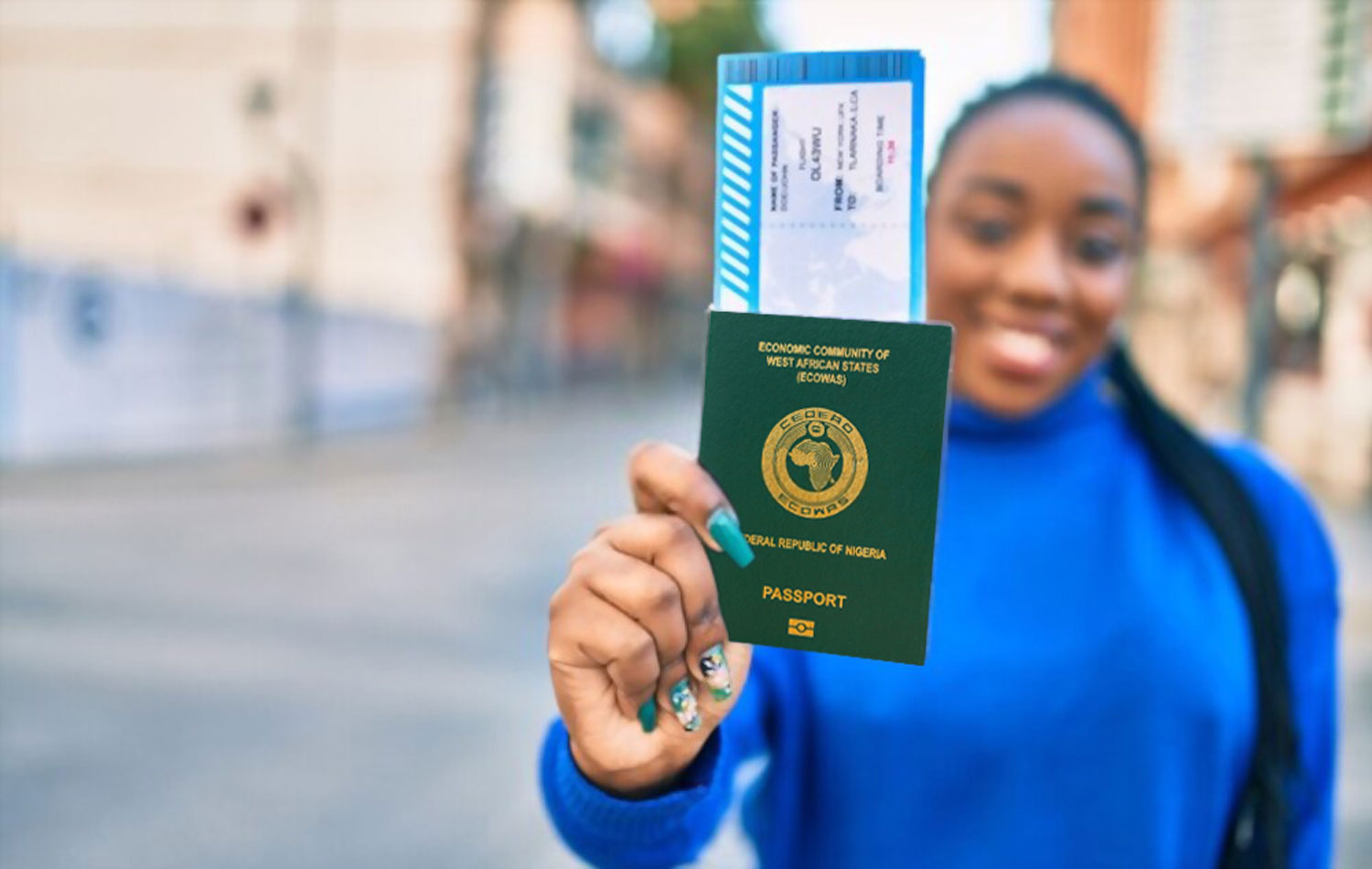Nigeria’s E-Visa: A New Door for Tourists
Are you planning a trip to Nigeria for tourism or business? The newly introduced Nigerian e-Visa system offers a streamlined, digital approach to visa applications. This initiative is a significant step toward making Nigeria more accessible to international visitors, promising a hassle-free entry process. Here’s everything you need to know about applying for an e-Visa and how it can simplify your travel plans.
Benefits of the Nigeria E-Visa for Tourists and Business Travelers

Nigeria’s electronic visa initiative allows travelers to apply for a visa without the need to visit an embassy or consulate, making it a convenient option for international investors, business travelers, and tourists. This fully digital system reduces the conventional paperwork and excessive red tape often associated with visa applications. Here are some key benefits:
- Simplified Application Process: Apply from anywhere, anytime, without physical documents.
- Faster Processing Times: Get your travel authorization quicker than traditional methods.
- Enhanced Accessibility: Ideal for last-minute travel plans and digital nomads.
The strongest point of Nigeria’s newly launched e-Visa is its considerable promise for its tourism sector. The e-visa is expected to boost Nigeria’s tourism revenue. Nigeria has a rich cultural heritage, and diverse landscapes could attract millions of tourists. The e-Visa will streamline the entry process, reducing bureaucratic hurdles that will position Nigeria as an accessible tourist spot.
The e-visa also poses as a tool for improving Nigeria’s international perception. An electronic Visa system signals that Nigeria is modernising its travel policies to align with global standards, enhancing the country’s image as a welcoming and progressive destination as easier access to Nigeria’s attractions elevates the nation’s international profile.
Plus, by simplifying its entry requirements, Nigeria could tap into niche tourism markets such as adventure tourism, cultural tourism, and eco-tourism, as the convenience of the e-visa could appeal to last-minute travelers and digital nomads, further diversifying the country’s tourism demographic.
E-Visas: Is Nigeria a Late Comer?
Nigeria joins the league of countries that have recognised that a robust tourism sector boosts GDP and creates jobs—over 330 million jobs were supported by the industry worldwide in 2023. Implementing e-visa systems has emerged as a key strategy for many countries aiming to revitalise their tourism sectors. E-visas appear to be an appealing convenience, particularly in a post-COVID world where travellers prefer minimal contact and streamlined procedures.
Due to increased accessibility, countries like Egypt have significantly expanded their e-visa offerings, allowing visitors from over 180 nationalities to apply online. E-visas have also been instrumental in helping countries recover from pandemic-related downturns. South Africa’s introduction of e-visas has proven integral to its strategy of attracting skilled migrants and tourists alike. Nearly half of the African continent has adopted e-visa systems, enhancing visa openness scores significantly. Like Nigeria, countries like Benin and Ghana have substantially improved their visa policies, facilitating easier travel for tourists.
READ ALSO:
- Nigeria’s Diaspora City Project
- Fashion Tourism: How Nigeria Can Leverage its Textile Industry as a Tourism Pull
- Federal Government Unveils Contactless Passport Renewal System Across Europe After Canada’s Success
Overcoming Challenges in Nigeria’s E-Visa Implementation
Despite the advantages, the roll-out of Nigeria’s e-Visa system faces potential hurdles:
- Technical Issues:
- As seen in other countries, e-Visa systems can suffer from system errors and instability. Ensuring robust IT support is crucial to avoid disruptions. For example, the UK’s e-visa system has been plagued by technical shortcomings, leading to delays and the extension of physical immigration documents.
- Data Management:
- Accurate handling and protection of personal data must be prioritized to prevent issues related to security breaches or incorrect visa denials. hese systems often pull data from various government databases to determine an individual’s immigration status. This process can be error-prone, leading to incorrect decisions due to conflated records or outdated information. Many countries focus solely on the online application process without including features for secure document scanning, validation, biometric capture, identity resolution, and e-visa issuance. This incomplete implementation can limit the full benefits of an e-visa system.
- Security:
- Digital visa systems are vulnerable to cyberattacks, data breaches, and identity theft, which can expose personal information and be used for fraud. Additionally, supporting documents submitted in digital format, such as proof of funds or invitation letters, increase the risk of forgery.
- Infrastructure Needs:
- Nigeria must continue to improve its ICT infrastructure to support the efficient operation of the e-Visa system. For one, Nigeria battles poor ICT infrastructure, which may compromise the efficiency of the e-visa service; Nigeria may likely experience significant delays in processing e-visa applications, which can hinder tourism and create frustration for travellers. Nigeria’s poor ICT infrastructure may also cause biometric data collection processes, such as fingerprints and digital pictures, to be filled with hiccups.
Addressing these challenges is vital for maintaining the integrity and effectiveness of the e-Visa system, ensuring it supports the country’s tourism and economic goals without compromising user experience or security.
Ensuring a Smooth Transition for Nigeria’s E-Visa

By learning from the experiences of other nations and anticipating potential obstacles, Nigeria can enhance its international image and attract more visitors through its e-Visa system.
For a successful implementation, Nigeria must adopt several strategies:
- Robust Security Measures: Implement the latest security protocols to safeguard applicant data and prevent cyber threats.
- User-Friendly Design: Create an intuitive, accessible e-Visa portal that accommodates all users, including those with limited tech skills.
- Comprehensive Support Services: Provide clear guidance and support for e-Visa applicants to navigate the system effectively.
Given Nigeria’s gaping digital divide, the e-visa system should not be exclusively digital to avoid potential human rights violations. Plus, alternative means to prove immigration status should be available, especially for vulnerable groups. Single identifiers should tightly link datasets to avoid data mismatching and incorrect results during live e-visa checks. There should also be support for vulnerable individuals, such as those experiencing homelessness, older people, those in care, and those with mental health needs.
Conclusion: Advancing Nigeria’s Tourism with the E-Visa Initiative
Nigeria’s e-Visa system marks a pivotal development in its tourism sector. By simplifying the visa application process, Nigeria not only enhances its appeal as a travel destination but also aligns with global standards in travel facilitation. As the system evolves, it promises to bring a new era of growth and accessibility to the country’s shores, making it easier for tourists and business travelers to explore the rich cultural and economic opportunities Nigeria has to offer.
Frequently Asked Questions
- What is the difference between a traditional Visa and an e-visa?
The online application procedure is generally uncomplicated and easy to navigate. Usually speaking, e-visas are processed more quickly than traditional visas. Many times processed in a few days, e-visa applications help to speed vacation planning. Sometimes, e-visas can be less expensive than conventional visas.
- What is a Nigeria E-visa?
Nigerian electronic visas are issued for tourism and business purposes. If you plan to visit Nigeria briefly, you can apply for an e-visa. You will receive an electronic travel authorisation letter (eTAL) and a pre-approval document. You must have it with you when you travel.
- What is the validity period of the Nigeria e-Visa?
The Nigeria e-Visa is valid for 14 days from the date of entry into Nigeria, and visitors can stay in the country for up to 30 days during that period.
- Can the Nigeria e-Visa be extended?
Yes, most Nigerian visas can be extended. However, you must apply for an extension before your visa expires by submitting a signed letter to the Comptroller General of Immigration.